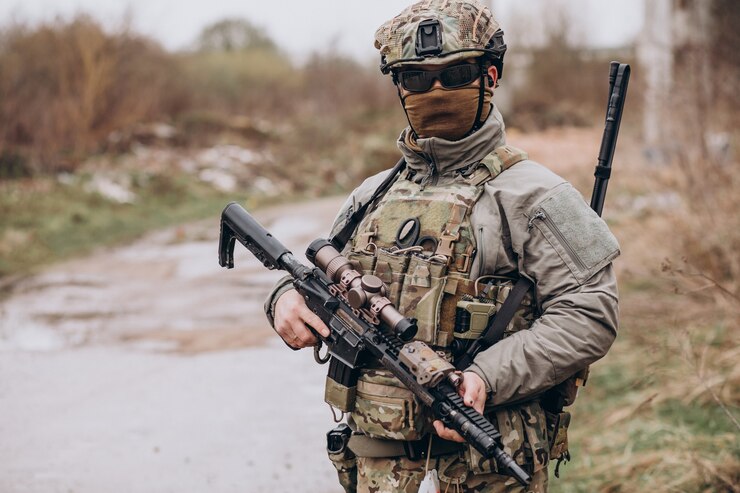Introduction
In recent times, the occurrence of tragic events like the Oklahoma shooting has become all too familiar in our society. Such incidents not only shake communities to their core but also raise important questions about safety, policy, and the well-being of individuals. In this article, we delve into the Oklahoma shooting, examining its impact on the community, the response from various stakeholders, and the lessons we can learn from such unfortunate events.
Background of the Incident
The Oklahoma shooting, which occurred on [insert date], sent shockwaves through the nation as [brief description of what happened]. The incident resulted in [mention casualties, injuries, or damages], leaving the community reeling from the aftermath.
Impact on the Community
The shooting had a profound impact on the local community, with residents experiencing a range of emotions from fear to grief. Families of the victims were left devastated, grappling with the sudden loss of their loved ones. Moreover, the incident heightened anxiety and concerns about safety among community members, leading to widespread unease.
Law Enforcement Response
Following the shooting, law enforcement agencies swiftly responded to the scene, working to secure the area and apprehend the perpetrator. Their coordinated efforts were crucial in minimizing further harm and restoring order to the community. However, questions may arise regarding the effectiveness of their response and whether additional measures could have been taken to prevent the incident.
Public Response and Reaction
In the wake of the shooting, the public took to various platforms to express their shock and condolences. Social media channels were flooded with messages of support for the victims and calls for justice. The incident sparked conversations about gun violence and the need for stricter regulations to prevent similar tragedies in the future.
Calls for Policy Change
The Oklahoma shooting reignited debates surrounding gun control policies, with advocates calling for stricter measures to curb access to firearms. The incident served as a stark reminder of the urgent need for comprehensive reform to address the root causes of gun violence and prevent future incidents.
Media Coverage and Representation
Media coverage of the Oklahoma shooting played a significant role in shaping public perception and understanding of the event. However, there were concerns about sensationalism and the ethical implications of how the incident was portrayed. Responsible journalism is essential in providing accurate information while minimizing harm to those affected.
Support for Victims and Families
In the aftermath of the shooting, numerous support networks were established to assist victims and their families. From counseling services to financial aid, the community rallied together to provide much-needed support and assistance. Additionally, fundraising efforts were launched to help cover medical expenses and funeral costs for the affected families.
Long-term Effects
The long-term effects of the Oklahoma shooting extend far beyond the immediate aftermath. Communities may continue to grapple with trauma, grief, and feelings of insecurity for years to come. It is essential for society to recognize and address these lingering effects, working towards healing and resilience.
Lessons Learned
Tragic events like the Oklahoma shooting serve as sobering reminders of the fragility of life and the importance of coming together in times of crisis. From these incidents, we must glean valuable lessons about the need for empathy, compassion, and proactive measures to prevent future tragedies.
Recovery and Healing Process
Despite the pain and suffering caused by the shooting, communities have shown remarkable resilience in their journey towards healing. Through acts of kindness, solidarity, and support, individuals have come together to rebuild and move forward. The recovery process may be long and arduous, but with determination and unity, communities can emerge stronger than before.
Preventative Measures
In light of the Oklahoma shooting and similar incidents, it is imperative to implement preventative measures to safeguard communities from future harm. This includes investing in mental health services, addressing socioeconomic disparities, and enacting sensible gun control policies. By addressing underlying issues and fostering a culture of prevention, we can create safer and more resilient communities.
Role of Mental Health Services
The aftermath of traumatic events like the Oklahoma shooting underscores the critical importance of accessible and effective mental health services. Individuals and communities affected by such tragedies may experience lasting psychological effects, requiring ongoing support and intervention. It is essential to prioritize mental health resources and destigmatize seeking help for trauma-related issues.
Unity and Solidarity
Amidst the tragedy and adversity, stories of unity and solidarity have emerged, showcasing the inherent resilience of the human spirit. From neighbors lending a helping hand to strangers offering support, acts of kindness have played a vital role in the healing process. These moments of solidarity remind us of the power of community and the human capacity for compassion and empathy.
Conclusion
The Oklahoma shooting serves as a stark reminder of the profound impact that acts of violence can have on communities and individuals. As we reflect on the tragedy and its aftermath, it is crucial to acknowledge the pain and suffering experienced by those affected while also recognizing the resilience and strength that emerges in times of crisis. By coming together, supporting one another, and advocating for positive change, we can honor the memory of the victims and work towards a safer and more compassionate society.
Frequently Asked Questions (FAQs)
Q: What were the circumstances surrounding the Oklahoma shooting?
A: The Oklahoma shooting occurred under tragic circumstances, leading to widespread shock and outrage.
Q: How did the community respond to the Oklahoma shooting?
A: The community rallied together in solidarity, offering support to those affected by the Oklahoma shooting.
Q: What role did law enforcement play in addressing the Oklahoma shooting?
A: Law enforcement agencies responded swiftly to the Oklahoma shooting, prioritizing public safety and conducting thorough investigations.
Q: What measures are being taken to prevent future incidents similar to the Oklahoma shooting?
A: Advocacy efforts and policy reforms are underway to address the root causes of gun violence and prevent future tragedies like the Oklahoma shooting.
Q: How can individuals support communities affected by the Oklahoma shooting?
A: Individuals can offer support through various means, including donations, volunteering, and advocating for policy changes to prevent similar incidents.
Q: What lessons can be learned from the Oklahoma shooting?
A: The Oklahoma shooting highlights the importance of addressing systemic issues contributing to gun violence and fostering community resilience.





